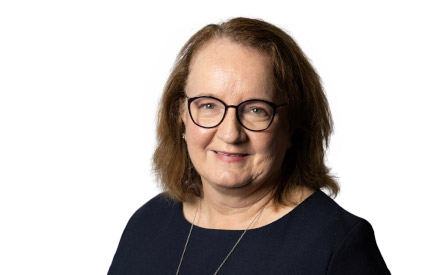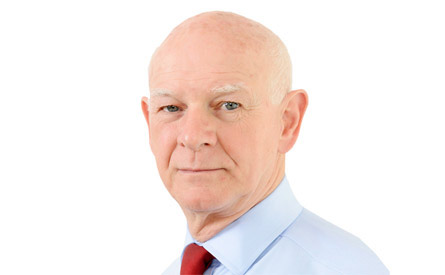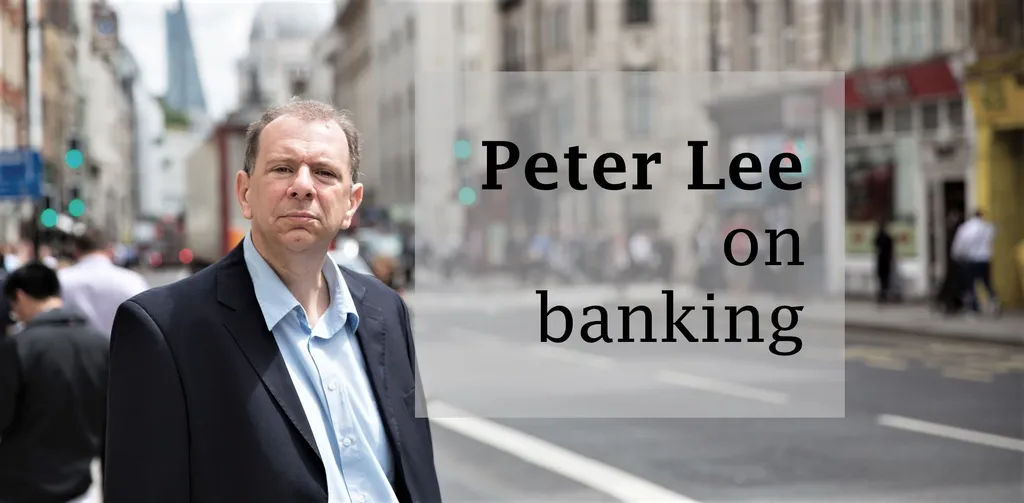Can it get any better than this for Paul Thwaite, newly confirmed as the chief executive of NatWest on Friday?
The bank’s shares rose 6.5% on the news, perhaps because it came on the same day that NatWest also announced full-year results for 2023 that included an operating profit of £6.2 billion and a return on tangible equity of 17.8%.
Soon to be ex-chairman Howard Davies, who leaves the group in April, provided the perspective. In his first year as chair, NatWest reported a loss of more than £2 billion. “The bank this new leadership team inherits is very different from the one I joined in 2015,” Davies says.

It is fundamentally stronger, buying back shares and increasing dividend payouts, while maintaining a 13% to 14% common equity tier 1 (CET1) ratio, even as new regulatory capital calculations inflate risk-weighted assets (RWAs).
It is more focused. It has slimmed down to just the UK, most recently even exiting the Republic of Ireland.
It is better at risk management.
In the retail bank, it is still integrating five legacy systems into one digital platform to get a single view of the customer. The good news is that in a year when many of those customers struggled with high inflation and rising rates, and the UK went into recession, the loan impairment rate was just 15 basis points in 2023.
That is around half what most analysts had forecast. And the bank is guiding to below 20bp for 2024.
Most of its lending is secured. Katie Murray, chief financial officer, points out: “Over half of our group lending consists of mortgages, with an average loan-to-value of 55%, and around 70% on new business.” The bank has grown share to become the country’s second-largest mortgage provider.
Commercial real estate accounts for less than 5% of group lending, at a loan-to-value of 48%.

The division that Thwaite used to run, commercial and institutional, reported a 27% rise in operating profit, up to £3.2 billion in 2023 from £2.5 billion in 2022, just over half the bank’s total, and is doing a better job of providing foreign exchange, rates and capital markets products and services to mid-market companies.
“This segment delivers attractive returns, and we see this as an area of further growth,” says Thwaite, also adding that in managing the associated growth in RWAs, NatWest intends to make “greater use of insurance or risk transfer”, where it has previously been “less active than some of our peers”.
It has not been drawn into the Financial Conduct Authority’s (FCA) investigation into commission arrangements around car finance, which investors in some UK banks worry may be become the next payment protection insurance (PPI) drag.
Shadow play
All UK banks expect net interest margins that had begun to contract in the final quarter of 2023 to compress further in 2024. Customers may have already moved out of zero-returning instant access accounts into higher-paying savings accounts, but the Bank of England (BoE) is likely to begin cutting rates at some point in 2024. That will hurt.
NatWest has hedged some of this risk, but is still guiding to total income this year of between £13 billion and £13.5 billion. That is down from £14.75 billion last year. With costs and CET1 likely to be stable, that implies a roughly 12% return on tangible equity, which management intends to pick up to above 13% in 2026.
This is where the shadow play comes in.
Everyone knows that the UK government wants to exit its ownership in the bank, a long legacy of the global financial crisis, by the end of 2026.
This impending sale now hangs over everything the bank does and everything its management says
Buybacks have already taken its stake down from 46% at the start of 2023 to 35% today. With an election looming, UK Government Investments (UKGI), the department of HM Treasury that manages government assets, is now working on a big retail share offering in the middle of this year, no doubt hoping that the chance to acquire shares of a strong but still undervalued bank at a discount will improve voters’ mood.
This impending sale now hangs over everything the bank does and everything its management says. “And, as you would expect, we are working closely with UKGI,” says Davies.
Davies may regret not being around to see the bank’s full return to private ownership.
It was a humiliation last year for him and the rest of NatWest’s board that they had agreed to back Alison Rose remaining as chief executive in the row manufactured by Nigel Farage over his no longer qualifying for an account at its private bank, Coutts. But within 24 hours, the leadership of the UK government let it be known that they disagreed. Rose was sacked.

Thwaite had been interim chief executive until being confirmed in the role after an executive search led by Rick Haythornthwaite, who will succeed Davies as chair in April and joined the board as a non-executive director at the start of this year.
Here’s what the analyst community has decided about NatWest’s downbeat guidance for 2024 earnings after the eye-catching success in 2023.
Management is being conservative, notably in the underlying macro assumptions behind its earnings and returns guidance. It is no longer providing an outlook for net interest margin, simply saying that income will likely be slightly higher in the second half of 2024 compared with the first half.
It wants investors to see a well-managed bank with potential for earnings growth, generous dividends and low likelihood of surprise losses. But it needs the valuation – still at just over 6.1 times expected 2024 earnings – to look attractive when the overhang of the UKGI stake hits the market, probably in the summer.
Everyone at the bank wants the valuation discount to tangible net asset value to close. Seeking to influence the timing of when that happens is a complex and delicate game.
Getting on and running the bank well should be easier and a much better use of management time.




